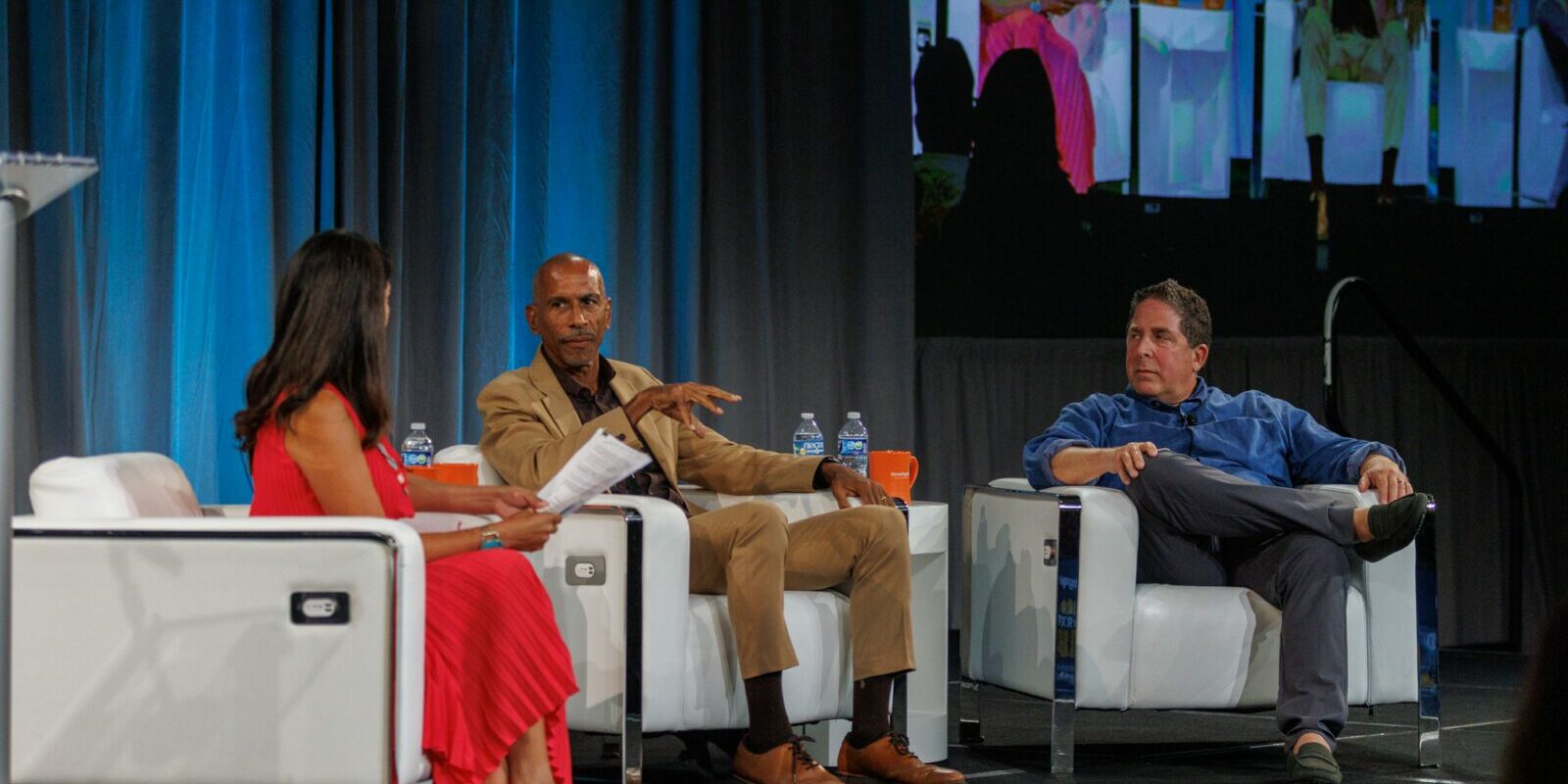Rick Hess and Pedro Noguera often fall on opposing sides of the ideological aisle. Despite their differences, they regularly engage in important conversations about the toughest issues in K-12 education today.
Rick Hess is a senior fellow and the director of education policy studies at the American Enterprise Institute, where he works on K-12 and higher education issues. Pedro Noguera is dean of the Rossier School of Education and a distinguished professor of education at the University of Southern California. Hess is typically labeled conservative and Noguera liberal, but they connect across their differences to develop new ideas around education. You can hear their conversations on their podcast, Common Ground: Conversations on Schooling. They also recently co-authored a book called “A Search for Common Ground.”
At the 2023 Cradle to Career Network Convening, they joined in conversation to explore how to disagree with grace and find that common ground to achieve a shared vision. Here are a few insights they shared with moderator Marcia Quiñones, program director for education at the Marin Community Foundation.
Don’t shy away from disagreement.
The idea for “A Search for Common Ground” arose from Hess’s frustration with so-called “courageous conversations,” many of which he felt were courageous in name only. He wanted to show what it looks like to disagree productively, so he connected with Noguera about the project.
Noguera immediately agreed to be involved. “I have found that the conversation about a lot of the education issues is stuck,” he shared. “What gets lost in that is the nuance and complexity of the issues.”
Codifying issues as black and white or right and wrong isn’t helpful, the two emphasized. Instead of demonizing or dismissing those who disagree with us, it’s important to dig in and ask tough questions.
“I find debate to be a helpful way of illuminating issues, especially when you’re debating with someone you respect,” said Noguera.
By asking hard questions — even of those who we think we agree with — we can get at the core causes of challenges and create effective solutions.
Build trust first.
The first step to disagreeing productively starts before the disagreement even begins, they shared. Developing relationships and building trust lays the foundation for finding common ground.
“You find common ground, first off, before the issue becomes incendiary,” said Hess. “We can find common ground with people whom we trust.”
Before difficult issues arise, establish honest communication. It’s easier to find common ground with someone you already have a relationship with, and that relationship can help drive your work forward even when dialogue is challenging.
Focus on the end result.
“You don’t start by saying, ‘You have to agree with me,’” shared Hess. “Start by saying, ‘What are we trying to accomplish?’”
Often we treat hot-button issues like slogans, demanding to know which side someone is on. But that diminishes the reality and doesn’t move us toward our goals, Hess said. “We don’t talk about issues with nearly the humanity or context that actually plays out when we talk about real kids, real schools and real communities.”
Connecting around our shared goals and the motivation behind the goals can move us forward. “If you speak to values, some of the extreme differences start to melt away, and you can reach people at a human level,” Noguera said.
Noguera shared about creating that connection at a recent speaking engagement with school board members in Arizona. “I knew that ‘equity’ was a big, polarizing term,” he shared. “So I leaned right into it. I said, ‘This is what equity means to me: Equity means educating all kids. Now, let’s talk about how we do that, and what it takes to make sure all kids are challenged and supported.’”
By grounding the conversation in shared values, he formed a connection with the audience that allowed them to see past differences and think about taking action, rather than getting mired in disagreement.
Keep data and evidence at the center.
When conversations get stuck, go back to data and evidence.
“Let’s make the conversation more precise,” Noguera encouraged. For instance, if we’re talking about banning books, which books for which kids? Speaking in specifics rather than generalizations, and bringing in data for clarity, leads to more productive conversations.
It’s also important to raise questions around evidence and incorporate the wisdom of experience to interpret data. Evidence isn’t just about quantitative data, either. Community, youth and family voices are critical in any conversation that impacts them.
As the election approaches and education policies become even more politicized, finding common ground is crucial. Building trust, approaching disagreement head-on, and focusing on evidence and results are key to creating common ground. In the Cradle to Career Network, partners across communities use that common ground to move toward a shared goal: the success of every child.
Rick Hess was featured on StriveTogether’s podcast, Together for Change. Find his episode focused on rethinking education systems here.






